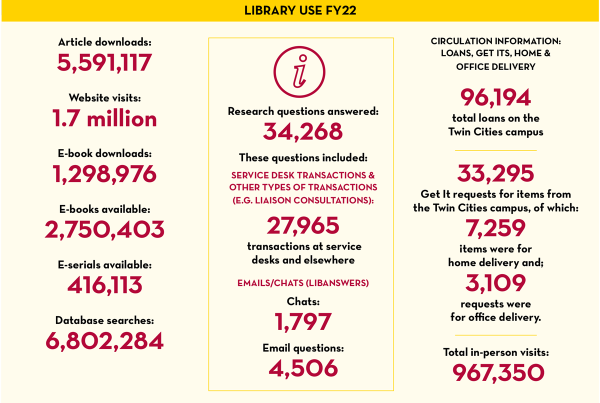This post is one in a series about the Libraries open access (OA) principles, as outlined in Towards Open Access at the University of Minnesota (z.umn.edu/TowardsOA). The Senate Library Committee (SLC) issued a statement of support in November 2021 and a number of Senate Committees have endorsed the SLC’s statement. Here, we’ll talk about our support for sustainable business models for OA monograph publishing.
Open access (OA) monographs play an important role in advancing scholarship, especially in disciplines that use book-length publications to distribute research. The “opening” of scholarly monographs has the ability to reach new audiences and expand the integration of primary resources, both digitized historical documents and data created with new methodologies, thanks to the born-digital nature of open access monographs.
Publishing OA monographs requires a new approach to the funding model. Monographs are high-touch, high cost, and historically, ”rarely profitable on a per-title basis” for university presses (see The Costs of Publishing Monographs: Toward a Transparent Methodology). The rise of digital humanities and integration of technology into research methods have pushed book publishers to create new platforms to meet the needs of authors and readers. Below are initiatives that will likely impact open access monograph publishing in 2023 and beyond.
MIT Press: Direct to Open
Launched in 2021, Direct to Open is MIT Press’ new model for funding open access monographs. Unlike other models, Direct to Open benefits all authors, and the books that are made open are not limited to those from authors from participating member institutions. The University of Minnesota Libraries participates in Direct to Open.
In 2023, it is likely that additional book publishers and presses will unveil holistic plans that provide more pathways for open access monograph publishing, while making adjustments to the financial model the press depends on. Authors should inquire with each press they work with as to opportunities for open access publishing.
Manifold
Manifold is a scalable, open-source, publishing platform created by the University of Minnesota Press, the CUNY Graduate Center, and Cast Iron Coding. Manifold is now being used by 30 publishers, including University of Minnesota Libraries Publishing. University of Minnesota Press is using the platform to publish all of the Press’s TOME titles, which includes books by Professor Elliot Powell (Sounds from the Other Side: Afro-South Asian Collaborations in Black Popular Music) and Professor Michael Gaudio (Sound, Image, Silence: Art and the Aural Imagination in the Atlantic World).
Authors of monographs should keep an eye out for more publishers using Manifold to publish open access monographs and to publish resource-rich digital content (including textbooks and classroom projects).
Fulcrum
Fulcrum is a community-based, open source publishing platform that helps publishers present the full richness of their authors’ research outputs in a durable, discoverable, accessible and flexible form. Fulcrum was created by University of Michigan Library and Press and is made available to any press looking for an in-house ebook publishing platform. University of Minnesota Duluth Professor Rob Wittig’s book, Netprov: Networked Improvised Literature for the Classroom and Beyond, is published on Fulcrum from Amherst College Press.
Similar to Manifold, authors of monographs should look for presses using Fulcrum. Presses using Fulcrum offer support for complex visualizations such as interactive models built in Unity3D, allowing authors to incorporate more than text and images.
For more information on open access monograph publishing, reach out to openaccess@umn.edu.




